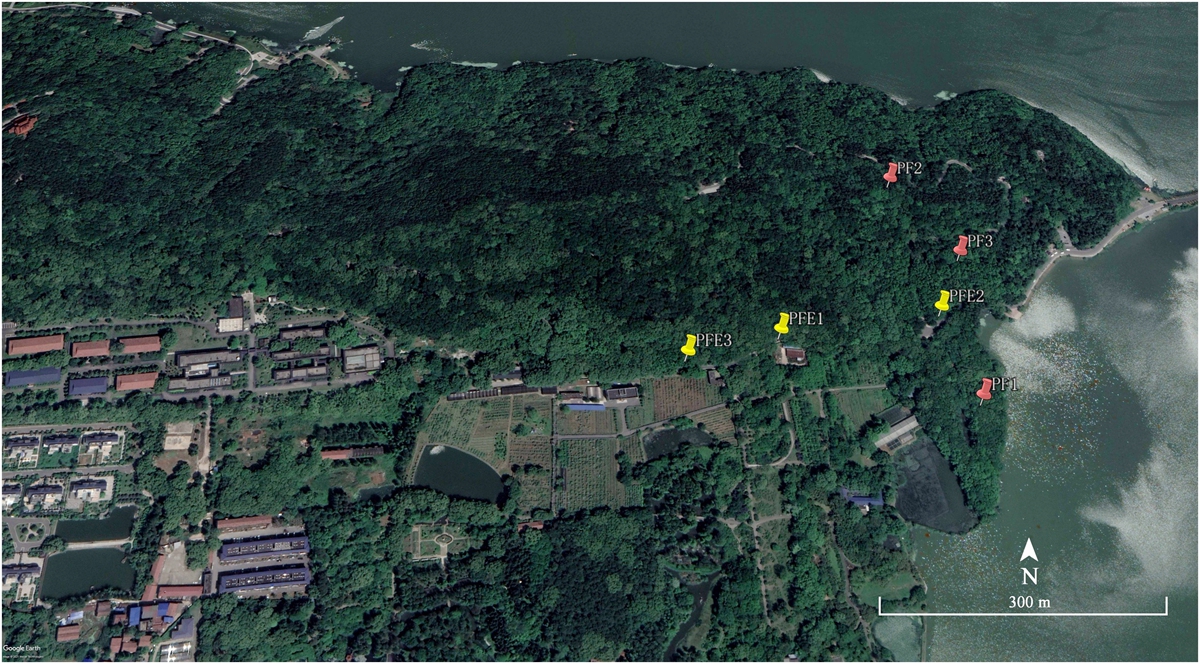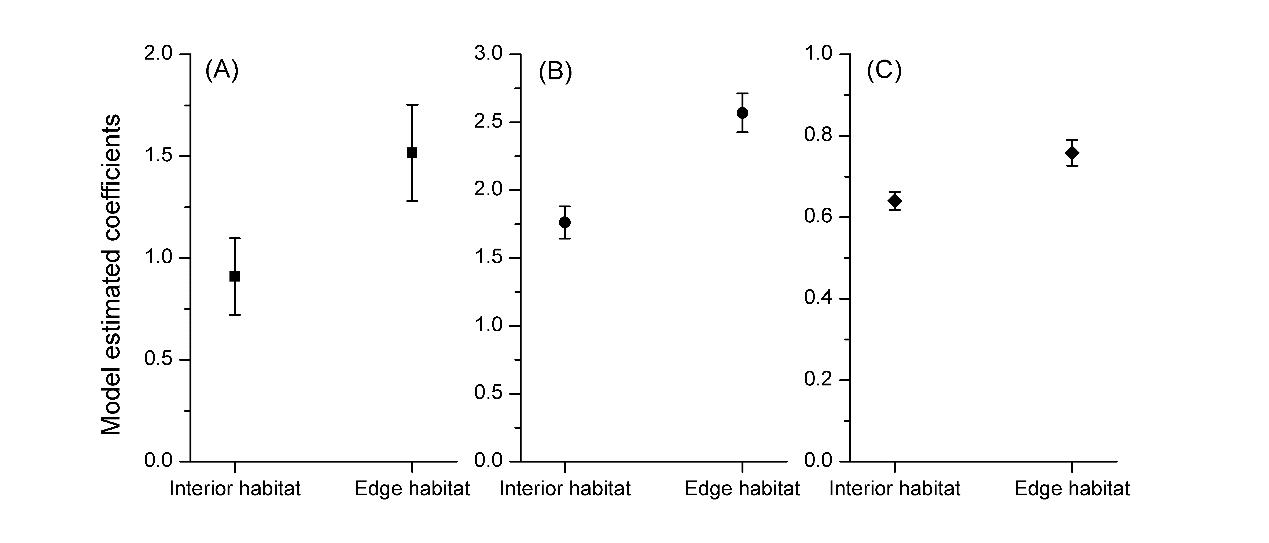Urban Forest Fragmentation Affects Pollinator-plant Interactions at Small Scale
2021-12-03
Continuous urbanization has caused grievous impacts on ecological process, such as habitat loss, fragmentation and disturbance, and microenvironment changes, which has profound impacts on the ecological environment. As one of the most important ecosystem services in nature, the animal pollination services are also influenced by urbanization remarkably, which has been attracting more and more ecologists' attention.
The Researchers from Plant Reproductive Ecology Group of Wuhan Botanical Garden took Moshan Park, Wuhan as the research site, and Ajuga decumbens and its pollinators in a fragmented forest environment as the research objects. The difference of the pollinator richness, pollinator abundance and the reproductive success of A. decumbens between the patches which were very close to each other from two habitat types (forest interior vs. edge) were compared.
The results showed that the pollinator richness and pollinator abundance at the patches from forest edge were higher than the forest interior. The former (forest edge patches) was mainly composed of solitary bees such as leafcutteridae, Streptera and tetraptera, while the latter (forest edge interior) was mainly composed of Apis cerana and carpenter bees. Moreover, the results also showed that the reproductive success (fruit rate) of A. decumbens in the forest edge patches was significantly higher than that in the forest interior patches.
This study shows that the fragmentation of urban forests can significantly affect the pollinator-plant interactions at very small scales. In addition, the forest edges can provide a good living space for some native plants and insects; and the heterogeneous habitats can improve the diversity of bee pollinators.
From the perspective of pollinator-plant interactions, this study suggests that if the forest fragmentation caused by urban construction is inevitable, it is necessary to reduce the hardening of newly generated forest edges or introduce exotic ornamental plants at will and focus on the replanting or natural recovery of native plants.
The research entitled “Urban forest fragmentation can highly influence pollinator-plant interactions in close contrasting habitats of a local herb, Ajuga decumbens (Labiatae)” was published in Urban Forestry & Urban Greening. This work was supported by the National Natural Science Foundation of China.

The locations of the selected patches of Ajuga decumbens. The red labels are forest interior patches (PF1,2,3) and yellow labels are forest edge patches (PFE1,2,3) (Image by WBG)

(A), (B), and (C) respectively showed that the pollinator richness, pollinator abundance and the fruit rate of A. decumbens from the forest edge patches were significantly higher than the forest interior patches (Image by WBG)